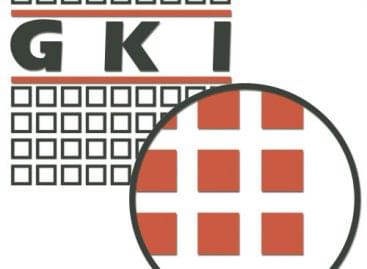Hungary’s online retail is worth more than a billion euros
This year’s first survey by GKI Digital and Árukereső.hu revealed that online retail sales represented a HUF 310-billion value last year. Online sales expanded by 18 percent in 2016 – Norbert Madar, the head of digital research at GKI told at a press conference on 22 February 2017. Last year 2.8 million consumers purchased something online at least once, 7 percent more than a year earlier. From total retail sales the share of e-commerce is 3.9 percent. Mr Madar added that there is great future ahead of online FMCG sales.
According to the results of the quarterly survey, more than 80 percent of online shops had a better year last year then in 2015. However, at least two thirds of them think that the level of concentration increased in their market. A good example of this was Black Friday, when only 32 percent of online shops performed as they had expected – especially the best known online shops did well, those that reach the most consumers. From the 2.8 million online buyers 5 percent only ordered once, but 40 percent purchased more than 10 times.
Because of the new market environment and the large number of promotions, online retailers had to target customers more precisely and know their buyers better than before, while shoppers were more conscious and loyal. Seemingly 2016 brought no changes in online retail, but Mr Madar underlined that it must be noted that for the second year in a row, the number of online shoppers only increased by one-digit numbers.
There is growing competition for shoppers who return. When shopping online, Hungarian consumers more and more often come across various innovative solutions such as mobile payment, easy loans, loyalty- or pre-paid card based payment or so-called one-click payment. Despite this technological development, the proportion of cash payment transactions started to grow again, from 57 percent in 2015 to 61 percent in 2016.
In 2016 about 240,000-250,000 consumers changed their mind within 14 days, having made an online purchase. In these cases the big question is how will the products be returned? There are more and more online shops that pay for the cost of returning the goods. //
Related news
Related news
GDP growth in OECD member countries slowed to 0.3 percent in the last quarter of last year
🎧 Hallgasd a cikket: Lejátszás Szünet Folytatás Leállítás Nyelv: Auto…
Read more >KSH: in the fourth quarter of last year, investment performance was 1.3 percent lower than a year earlier
🎧 Hallgasd a cikket: Lejátszás Szünet Folytatás Leállítás Nyelv: Auto…
Read more >








